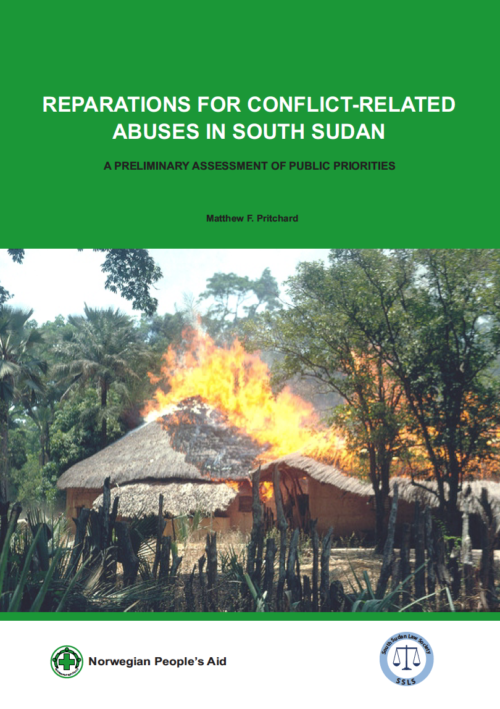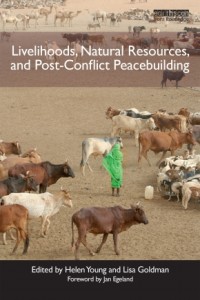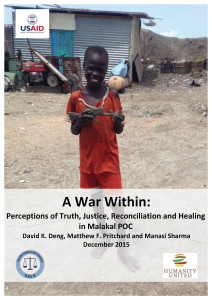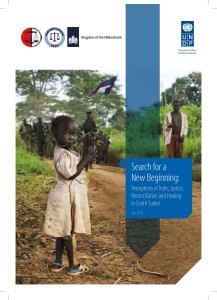On August 17th, 2015, the Government of the Republic of South Sudan, Sudan People’s Liberation Army/Movement – In Opposition, the ‘Former Detainees’, and other stakeholders signed the Agreement on the Resolution of Conflict in the Republic of South Sudan (ARCISS). The main goals of this peace agreement are to bring an end to the 2013 civil war, lay the groundwork for an inclusive transitional government, and introduce a suite of aggressive institutional reforms. Additionally, over the course of a 30-month period the Transitional Government of National Unity is expected to restore peace and security, expedite the return and resettlement of IDPs and refugees, develop a new constitution, organize national elections, and initiate a comprehensive transitional justice programme aimed at promoting truth, reconciliation, and healing.
Although the ARCISS peace agreement has generally failed to bring about any meaningful reductions in conflict, or initiate substantive political reforms, several donors, NGOs, and CSOs remain committed to promoting reconciliation as outlined under Chapter V of the agreement (Transitional Justice, Accountability, Reconciliation and Healing). In an attempt to initiate discussion on a key component of the transitional justice framework introduced in the ARCISS agreement, in early 2017 the South Sudan Law Society – in partnership with Norwegian People’s Aid – completed an initial assessment of public priorities for reparations in five of the most conflict-affected areas of South Sudan. The main goals of this assessment were to conduct preliminary research on possible options for reparations and contribute to the development of a credible and transparent reparations processes for the victims of conflict in South Sudan.
Findings from this study demonstrate that the nature and extent of conflict throughout the field sites have led to widespread agreement regarding the need for reparations, types of programmes, and mechanisms of delivery. Additionally, the extent to which respondents across all field sites (regardless of age, gender, level of education, and income) have witnessed and experienced severe human rights violations has fostered significant agreement on the typology of ‘victims,’ priorities for material reparations, and opinions on who should be responsible for implementing any forthcoming programmes.
Beyond widespread demand for individual material goods and the belief that any attempt at redress should prioritize women, children, and elderly victims of conflict-related violations, results from this study also highlight several larger trends that require further research and discussion.
First, the nature and extent of the on-going conflict has had a devastating impact on the population of South Sudan. Targeting of civilians, use of rape as a weapon of war, and property destruction have affected millions of people; very few areas of the country have been spared. Despite the universally brutal nature of the violence, the war has resulted in different priorities for reparation that will need to be incorporated into any programme(s) moving forward. The fact that the overwhelming majority of results from this study vary significantly according to geographic location but are not affected by a respondent’s age, gender, or level of education, reinforces the extent to which reparations must account for local needs, opportunities, and challenges. Despite similar experiences with violence, a myriad of factors such as gender, ethnicity, religion, and customary law will impact the nature and potential success of reparations programmes moving forward.
Second, although there were little to no statistically significant differences between responses from men and women who participated in this study, a detailed understanding of the gendered nature of violence and structural income and power inequalities must be incorporated into all stages of the design and implementation of any reparations programme. Participants universally highlight the impacts that the conflict has had on women and the ensuing challenges widows and victims of sexual and gender-based violence will face re-establishing the most basic forms of livelihoods security. Widespread recognition that women are among the most vulnerable victims of conflict-related violations demonstrate the extent to which gender must be included in all aspects of reparations at the local, regional, and national levels, as well as in the design and implementation stages. It is not enough to say that a reparations programme focuses on gender; programmes must go out of their way to address and overcome structural inequalities and challenge practices that undermine women’s roles in social, political, and economic reforms.
Finally, although reparations and other transitional justice measures are important for longterm peace, we must continue to focus on addressing the issues that create these demands in the first place. Data collected for this project demonstrate a significant demand for reparations, but respondents are quick to point out that what they truly require is food, shelter, and physical security. Although a detailed understanding of public priorities for reparation as the conflict evolves highlights the importance of transitional justice and can be used to inform future programmes, any attempt at implementation requires stable social, political, and economic relations. Before a meaningful reparations policy (and resulting programmes) can be developed, state and non-state actors must not only take responsibility for their actions, but also commit to legitimate political and institutional reform. Reparations without peace and legitimate government buy-in risks alienating specific communities and undermining rather than promoting peace.
Click here to download the full version of the report.



